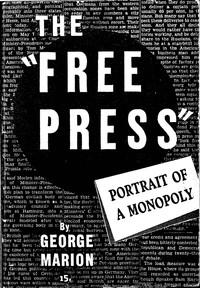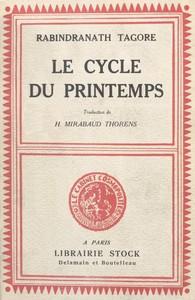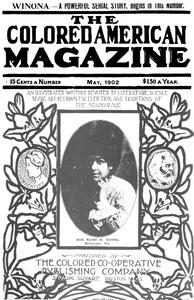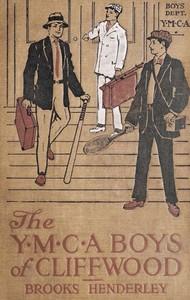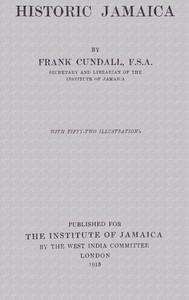|
|
Read this ebook for free! No credit card needed, absolutely nothing to pay.Words: 16172 in 5 pages
This is an ebook sharing website. You can read the uploaded ebooks for free here. No credit cards needed, nothing to pay. If you want to own a digital copy of the ebook, or want to read offline with your favorite ebook-reader, then you can choose to buy and download the ebook. The condition has arisen not by the will of any individual or group, but from a gradual growth of custom, both in newspaper operation and in the purchase of advertising space. This refers to the preference of advertisers for fewer papers with larger circulations. The net effect is that the local monopolies are barricaded against competition and the price of admission is several million dollars. FOR WHOM THE PRESS TOILS If ownership of the press is closed to all but an estimated 1,300 multimillionaire owners, whose opinions appear in it? The obvious answer is: the opinions of the owners. They make no bones about it. Canons of ethics sometimes pay lip service to "public interest," but in making legal commitments the publishers insist on written guarantees that their views and nobody else's shall go into "their" newspapers. The American Newspaper Guild, for instance, is forced to reacknowledge, from time to time, its formal acceptance of the publishers' opinion monopoly. Newspaper workers claim no right to speak through the pages of their employers' papers. From copyboy to top editor, newspapermen are hired hands, engaged for the sole purpose of putting their employer's opinions in print. The press is, in fact, an important part of the State apparatus. It plays a key role in maintaining the rule of the Sixty Families over the 140,000,000 people of the United States. It is a tool in the hands of the few finance capitalists who remain all-powerful so long as they are able to keep the masses divided and confused. It is true that the press lords are forever wailing about an alleged government menace to press freedom. The conflict of press and government does not contradict, however, the charge that the press is an instrument of the State. The common notion that State and government are two names for one thing, makes a few words on theory advisable at this point. A hundred or a hundred and fifty years ago, there would have been less likelihood of similar confusion. In the great political strife that attended and immediately followed the adoption of the United States Constitution, political theory was treated with more respect than it is today. Federalists and Jeffersonians agreed that the State was an instrument of class rule. Jeffersonian John Taylor saw revolution and "order" as "two modes of invading private property; the first, by which the poor plunder the rich ... sudden and violent; the second, by which the rich plunder the poor, slow and legal." Summarizing Taylor's views, historian Arthur Schlesinger, Jr. says: "The succession of privileged orders through history--the priesthood, the nobility, now the banking system--showed how every age had known its own form of institutionalized robbery by a minority operating through the State." Lenin later put it scientifically: "The State is an organ of class domination, an organ of oppression of one class by another; its aim is the creation of 'order' which legalizes and perpetuates this oppression." The American State Classes do not march in a straight line to their goals. Sometimes the executive arm of government is completely responsive to the views of the most reactionary section of capitalism, as when Hoover, Harding, Coolidge were President. Sometimes the President is not fully "manageable," as in the case of President Roosevelt. But he then finds himself pretty well invested by "trustworthy" men; he must accept a John Garner for Vice-President; he must put men like Jesse Jones in his Cabinet. In the same way, Congress may be an easy tool of reactionary interests one term, curbed by public pressure the next. Note the speed with which the last few Congresses have enacted drastic anti-labor legislation and tax bills pouring billions into the coffers of Big Business. If an active public conscience restricts the freedom of executive departments and legislative departments otherwise favorable to Big Business, there are always the courts. When the democrats, Jefferson, Madison, Monroe, held the presidency, Martin Van Buren noted that the party of rich-man's-rule fled to "the judicial department of the government, as to an ark of future safety which the Constitution placed beyond the reach of public opinion." So today the courts readily grant anti-picketing injunctions to employers despite laws expressly designed to halt such use of the injunction. Below the Federal level, government is even more easily dominated by big capital. The local police are always at hand for strike duty. Governors and mayors dance to Big Business tunes. Beyond all these departments of government are other tools at the service of the ruling class to help it maintain political dominance, regiment public opinion, terrorize and repress dissenters, employ and reward servants and agents of all kinds, to the end of constantly increasing its profits, intensifying its exploitation of the population and extending its enormous powers. Schools, churches, theaters are manipulated by boards directly selected by leading capitalists. The Morgans and Rockefellers personally oversee, as trustees, the largest universities, public libraries and museums. Radio, moving pictures, and the press--frankly described by their private owners as "opinion-forming industries"--are even more elaborately controlled devices for class rule. Of all these, the press is the most powerful single force in our time. The United States maintains a public-opinion-forming apparatus unparalleled in history and unequalled in any other land for the sheer weight of "information" hurled at a defenseless public. There is no chance for the public to make up its own mind. Private Power The newspaper owners have virtually unlimited control of this apparatus despite their elaborate pretense of suffering government constraint. The outcry against the government is a complete fraud. The owners are simply demanding a monopoly power over public opinion. They go so far as to impose a virtual censorship on an Administration with which they are not in complete sympathy. They got Congress to pass an act frankly designed to suppress Marshall Field's pro-Roosevelt newspapers. If you so much as criticize the opinion-monopoly, you are accused of attacking freedom of the press. The monopolists have bulldozed the politicians until no less bold a critic than Mr. Ickes has gone on record as opposing publication of even a single government newspaper. Free books android app tbrJar TBR JAR Read Free books online gutenberg More posts by @FreeBooks
: Le cycle du printemps by Tagore Rabindranath Mirabaud Thorens H Henriette Translator - Indic drama Translations into French; Bengali drama Translations into French@FreeBooksThu 08 Jun, 2023

: Winona by Hopkins Pauline E Pauline Elizabeth - African Americans Southern States Fiction; African Americans Southwestern States Fiction@FreeBooksThu 08 Jun, 2023
|
Terms of Use Stock Market News! © gutenberg.org.in2025 All Rights reserved.

